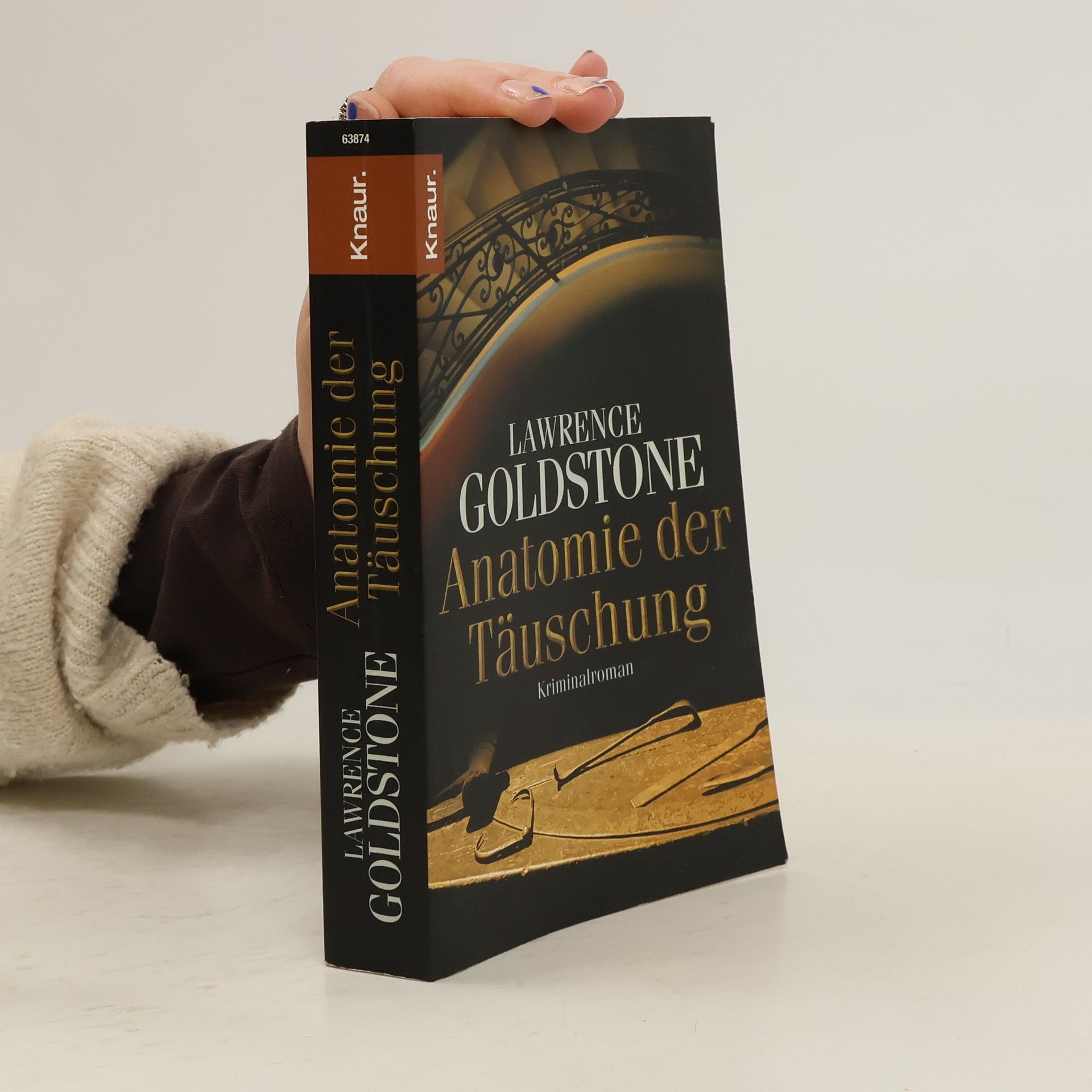Philadelphia 1889: Im Seziersaal der Universitätsklinik obduziert eine Gruppe von Ärzten unter Leitung des weltberühmten Chirurgen William Osler die eingelieferten Toten. Unter ihnen befindet sich die Leiche einer bildhübschen jungen Frau, die kaum äußere Verletzungen aufweist. Als er Professor bei ihrem Anblick die Obduktion überhastet abbricht, fragt sich der junge Dr. Ephraim Carroll, was diese ungewöhnliche Reaktion ausgelöst haben könnte. Bei seinen Nachforschungen stellt sich heraus, dass die Tote aus einer der vornehmsten Familien der Stadt stammt. Als ein Kollege vergiftet wird, ahnt Ephraim, dass er einem lebensgefährlichen Geheimnis auf der Spur ist …
Lawrence Goldstone Bücher
Lawrence Goldstone schreibt mit unfehlbarer Präzision über Themen, die die tiefsten Aspekte der amerikanischen Kultur und Gesellschaft erforschen. Seine Arbeit zeichnet sich durch tiefen Einblick und scharfe Beobachtung aus, wobei er sich oft auf die Komplexität der menschlichen Natur und sozialer Strukturen konzentriert. Goldstone's Stil ist sowohl immersiv als auch herausfordernd und regt die Leser dazu an, über das nachzudenken, was sie sehen und hören. Seine Schriften erinnern ständig an die Kraft des gut geschriebenen Erzählens und seine Fähigkeit, die Wahrheit im Alltäglichen aufzudecken.






The book, recognized with the Lillian Smith Book Award, explores profound themes of social justice and human resilience. Through compelling characters and a rich narrative, it delves into the complexities of identity and community, offering an insightful commentary on contemporary issues. The author’s evocative prose brings to life the struggles and triumphs of individuals, making it a poignant and thought-provoking read that resonates with readers seeking depth and understanding in the human experience.
"On Easter Sunday of 1873, just eight years after the Civil War ended, a band of white supremacists marched into Grant Parish, Louisiana, and massacred over one hundred unarmed African Americans. The court case that followed would reach the highest court in the land. Yet, following one of the most ghastly and barbaric incidents of mass murder in American history, not a single person was convicted. The opinion issued by the Supreme Court in US v. Cruikshank set in motion a process that would help create a society in which black Americans were oppressed and denied basic human rights -- legally, according to the courts. These injustices would last for the next hundred years, and many continue to exist to this day. In this compelling and thoroughly researched volume for young readers, Lawrence Goldstone traces the evolution of the law and the fascinating characters involved in the story of how the Supreme Court helped institutionalize racism in the American justice system."--Provided by publisher.
Separate No More: The Long Road to Brown v. Board of Education (Scholastic Focus)
- 304 Seiten
- 11 Lesestunden
An evocative chronicle of the battle that led to America's landmark Brown v. Board of Education ruling shares insights into the abuses of the "separate but equal" system and how such courageous activists as Booker T. Washington and W. E. B. Du Bois helped end legal segregation.
A thrilling and incisive examination of the post-Reconstruction era struggle for and suppression of African American voting rights in the United States.Following the Civil War, the Reconstruction era raised a new question to those in power in the US: Should African Americans, so many of them former slaves, be granted the right to vote?In a bitter partisan fight over the legislature and Constitution, the answer eventually became yes, though only after two constitutional amendments, two Reconstruction Acts, two Civil Rights Acts, three Enforcement Acts, the impeachment of a president, and an army of occupation. Yet, even that was not enough to ensure that African American voices would be heard, or their lives protected. White supremacists loudly and intentionally prevented black Americans from voting -- and they were willing to kill to do so.In this vivid portrait of the systematic suppression of the African American vote, critically acclaimed author Lawrence Goldstone traces the injustices of the post-Reconstruction era through the eyes of incredible individuals, both heroic and barbaric, and examines the legal cases that made the Supreme Court a partner of white supremacists in the rise of Jim Crow. Though this is a story of America's past, Goldstone brilliantly draws direct links to today's creeping threats to suffrage in this important and, alas, timely book.
Days of Infamy: How a Century of Bigotry Led to Japanese American Internment (Scholastic Focus)
- 288 Seiten
- 11 Lesestunden
The book explores the historical context and consequences of the Japanese internment during World War II, beginning with the attack on Pearl Harbor and President Roosevelt's subsequent actions. It examines the mass deportation of over 100,000 Japanese Americans, highlighting the lack of evidence against them and the racial prejudice that fueled these decisions. Constitutional law scholar Lawrence Goldstone traces the roots of anti-Japanese sentiment in America, questioning the definition of American identity and the role of the Supreme Court in upholding justice.